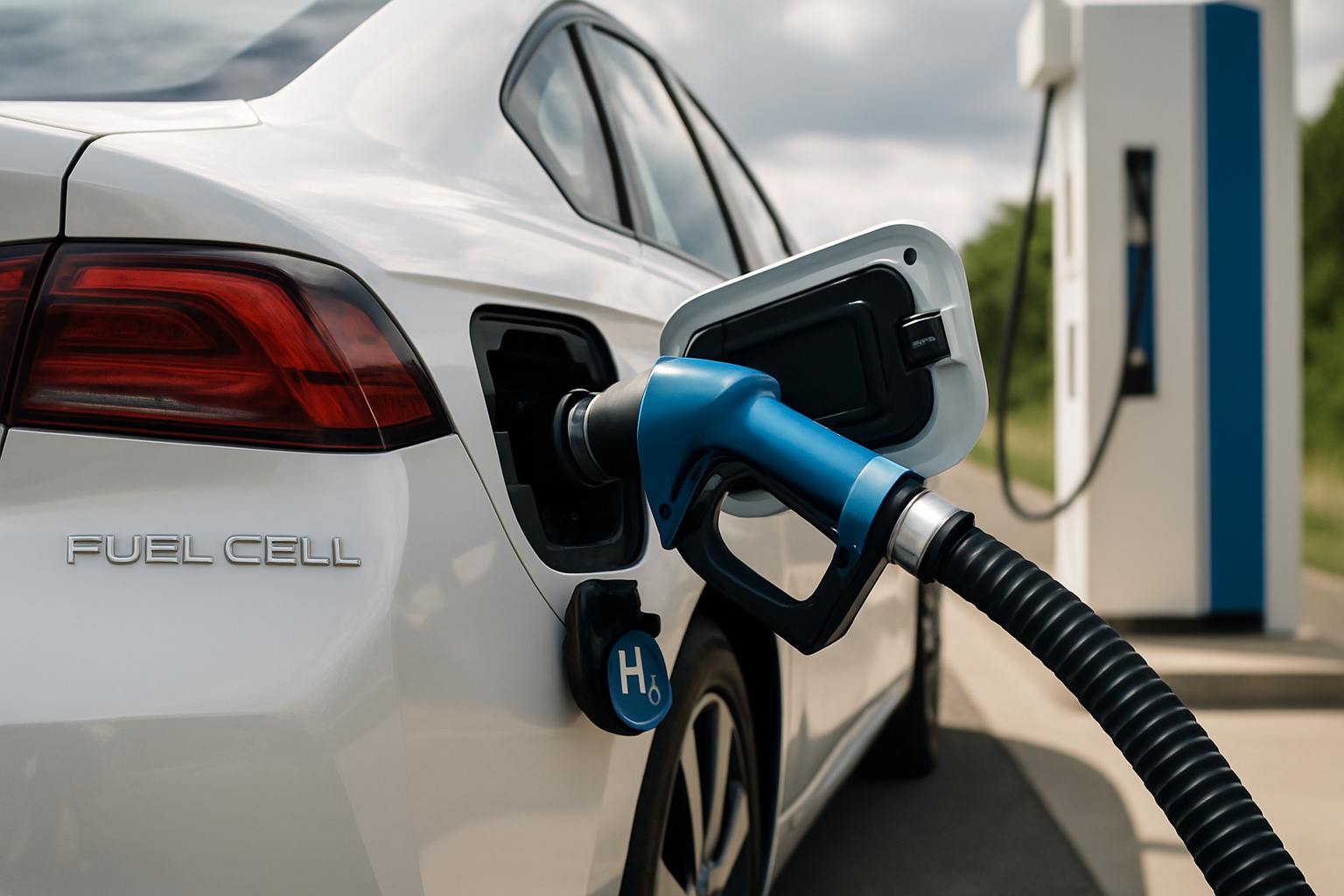Harnessing the Future: Advanced Fuel Cell Technology in the Automotive Industry
Introduction: Imagine driving a car that emits only water vapor, not harmful gases. A car that runs on the most abundant element in the universe, Hydrogen. Welcome to the world of Fuel Cell Vehicles (FCVs), a promising technology that could redefine the future of automotive transportation.

A Glimpse into the Past: The Genesis of Fuel Cells
Fuel cell technology isn’t a new concept. The basic principle was discovered in the early 19th century by Sir William Grove, a British scientist. However, it wasn’t until the mid-20th century that the technology found applications in NASA’s space programs. In the automotive world, the first fuel cell vehicle, the GM Electrovan, was introduced in 1966. Despite these early developments, fuel cell technology remained largely obscure due to high costs and technical challenges.
Fuel Cells: The Science Behind the Technology
Unlike conventional cars that run on gasoline or diesel, FCVs use hydrogen as fuel. The heart of an FCV is the fuel cell stack, where hydrogen reacts with oxygen to produce electricity, which powers the car’s motor. The only by-product of this process is water vapor, making FCVs a zero-emission technology.
The Current State of the Art: Fuel Cell Vehicles Today
Today, a handful of automakers, including Toyota, Honda, and Hyundai, have commercial FCVs on the market. These cars offer several advantages over conventional vehicles and even electric cars. FCVs boast a longer range, up to 300 miles on a single tank of hydrogen, and refueling takes only minutes, similar to gasoline cars. Despite these benefits, FCVs remain a niche segment due to the lack of hydrogen refueling infrastructure and the high cost of fuel cell systems.
The Road Ahead: Challenges and Opportunities
For fuel cell technology to become mainstream, several hurdles need to be overcome. The most significant is building a widespread hydrogen refueling network, a costly and complex undertaking. Furthermore, producing hydrogen in a sustainable and affordable manner is a challenge. However, with ongoing research and government support, these obstacles could be overcome.
Shaping the Future: The Impact of Fuel Cell Technology
The potential impact of FCVs is enormous. As a zero-emission technology, they could play a critical role in mitigating climate change. Moreover, hydrogen as a fuel source can reduce our reliance on fossil fuels, leading to greater energy security. Despite the challenges, the potential benefits make fuel cell technology an exciting frontier in the automotive world.
In conclusion, fuel cell technology holds tremendous promise for the future of transportation. While challenges remain, ongoing advancements and the potential benefits of this technology make it an exciting area to watch in the coming years. As the auto industry continues to evolve, FCVs could become a significant part of our driving future.




